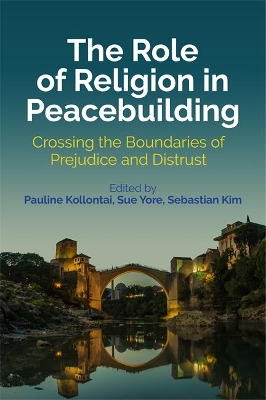The question 'who is my neighbour?' challenges the way we see ourselves as well as the way we see others. Especially in situations where we feel conflicted between our own self-identity and common identity within a wider society.
Read more
Historically, religion has contributed to this inner conflict by creating 'us versus them' mentalities. Challenging this traditional view, this volume examines how religions and religious communities can use their resources, methodology and praxis to encourage peace-making.
The book is divided into two parts - the first includes sources, theories and methodologies of crossing boundaries of prejudice and distrust from the perspectives of...
The question 'who is my neighbour?' challenges the way we see ourselves as well as the way we see others. Especially in situations where we feel conflicted between our own self-identity and common identity within a wider society.
Historically, religion has contributed to this inner conflict by creating 'us versus them' mentalities. Challenging this traditional view, this volume examines how religions and religious communities can use their resources, methodology and praxis to encourage peace-making.
The book is divided into two parts - the first includes sources, theories and methodologies of crossing boundaries of prejudice and distrust from the perspectives of theology and religious studies. The second includes case studies of theory and practice to challenge prejudice and distrust in a conflict or post-conflict situation. The chapters are written by scholars, religious leaders and faith-motivated peace practitioners from various global contexts to create a diverse academic study of religious peace-building.
- ISBN10 1784506575
- ISBN13 9781784506575
- Publish Date 14 December 2017
- Publish Status Out of Print
- Out of Print 21 October 2021
- Publish Country GB
- Imprint Jessica Kingsley Publishers
- Edition Digital original
- Format eBook
- Pages 416
- Language English
